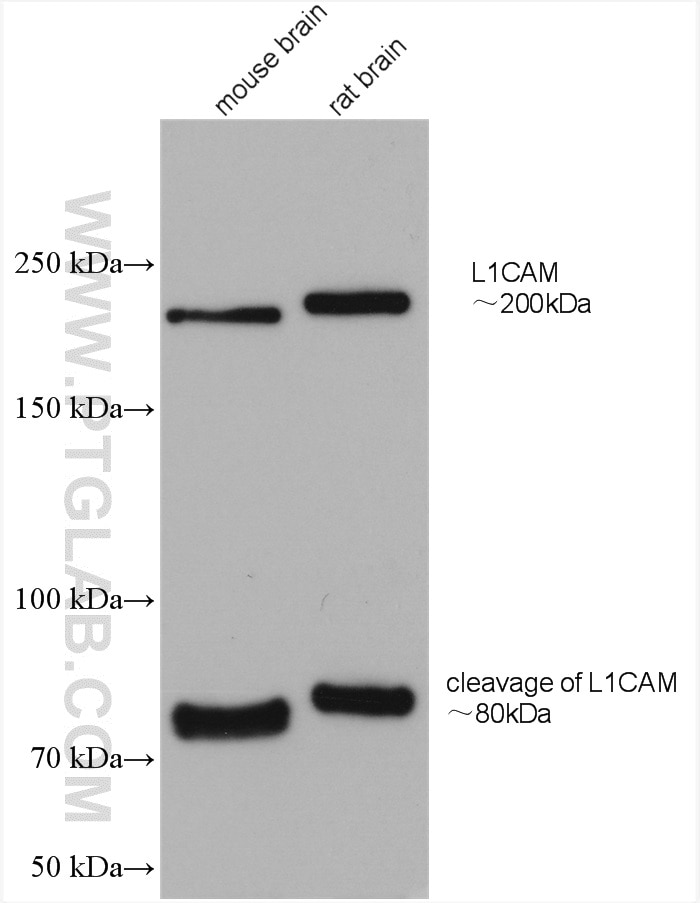Validation Data Gallery
This product is currently not available for sale.
Tested Applications
Recommended dilution
| Application | Dilution |
|---|---|
| It is recommended that this reagent should be titrated in each testing system to obtain optimal results. | |
Product Information
20659-1-PBS targets L1CAM in WB, Indirect ELISA applications and shows reactivity with human, mouse, rat samples.
| Tested Reactivity | human, mouse, rat |
| Host / Isotype | Rabbit / IgG |
| Class | Polyclonal |
| Type | Antibody |
| Immunogen | Peptide 相同性解析による交差性が予測される生物種 |
| Full Name | L1 cell adhesion molecule |
| Calculated molecular weight | 140 kDa |
| Observed molecular weight | 200-220 kDa, 80 kDa |
| GenBank accession number | NM_000425 |
| Gene Symbol | L1CAM |
| Gene ID (NCBI) | 3897 |
| RRID | AB_2878717 |
| Conjugate | Unconjugated |
| Form | Liquid |
| Purification Method | Antigen affinity purification |
| UNIPROT ID | P32004 |
| Storage Buffer | PBS Only |
| Storage Conditions | Store at -80°C. |
Background Information
L1CAM, also known as NCAM-L1 or CD171, is a cell adhesion molecule of the immunoglobulin superfamily. It is a 200-220 kDa transmembrane glycoprotein composed of six Ig-like domains and five fibronectin type III repeats followed by a transmembrane region and a highly conserved cytoplasmic tail (PMID: 3412448; 22796939). L1CAM is primarily expressed in the nervous system and is involved in neuron-neuron adhesion, neurite fasciculation, outgrowth of neurites, cerebellar granule cell migration, neurite outgrowth on Schwann cells and interactions among epithelial cells of intestinal crypts (PMID: 3412448; 10767310). L1CAM is overexpressed in many human cancers and is often associated with bad prognosis (PMID: 27267927; 26111503). It has been reported that L1CAM can be proteolytically cleaved into a soluble fragment of 140 kDa and an intracellular fragment of 80-85 kDa (PMID: 30842511; 34380733). This antibody raised against 1206-1221aa of human L1CAM detects 200-220 kDa full-length L1CAM and 80-kDa cleaved fragment of L1CAM.
